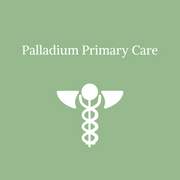4 Things to Expect From an Annual Physical

Preventing serious health conditions by attending your annual physical is the best way to prioritize your wellness as you age. When your physician is able to examine your body for any abnormalities, potential issues can be addressed sooner rather than later, eliminating the need for more drastic measures down the line. To feel more comfortable for your upcoming appointment, use this guide to discover what you can expect from your annual check-up.
Annual Physical Checklist
1. Medical History & Vital Signs
The details of your medical history can offer your doctor valuable insight for making any connections or predictions should anything in your exam appear to be unusual. This information will include your family medical history, sexual history, current status of health and diet, as well as any changes to medications. Additionally, you will have your heart rate, blood pressure, blood oxygen level, and temperature taken to ensure all results are normal for your age and lifestyle.
2. Body Exam

The physician will use a stethoscope to listen for any potential abnormalities like heart murmurs, an irregular heartbeat, or unusual breathing sounds. After using a stethoscope, the doctor will begin to examine the state of your lymph nodes, muscles, and organs, as these parts can indicate common health issues. They will also examine your torso, neck, and head to see if any of these sensitive areas need attention.
3. Neurology & Blood Work
It is important to identify deficiencies in the nervous system as we age because they can indicate more serious issues. To ensure your mind-body connection is where it should be, the physician will check your reflexes using a mallet. Blood work to assess cholesterol levels, liver and kidney function, and blood sugar will be compared to years prior to ensure there are no significant deviations. Additionally, you may be tested for potential infections related to common illnesses or STIs that may put your health at risk.
4. Cancer Screening
Your family history may affect the frequency of your cancer screenings, as some individuals are at higher risk due to genetics. It is not uncommon to be examined for signs of skin or rectal cancers during your annual physical. Tests to screen for gender-specific cancers like breast and cervical cancer for women and prostate cancer for men are also typical during a check-up.
Staying on top of your health can be made easier when you are working with the right physician. Dr. Osei-Bonsu and the entire staff of Palladium Primary Care dedicate themselves to providing exemplary care to all of their patients in High Point, NC, and the surrounding areas. With a variety of services offered to address acute pain, illnesses, and injuries, patients leave each visit with Dr. Osei-Bonsu feeling better than when they walked in. To make your appointment, call (336) 841-8500 or visit them online.
About the Business
Have a question? Ask the experts!
Send your question

